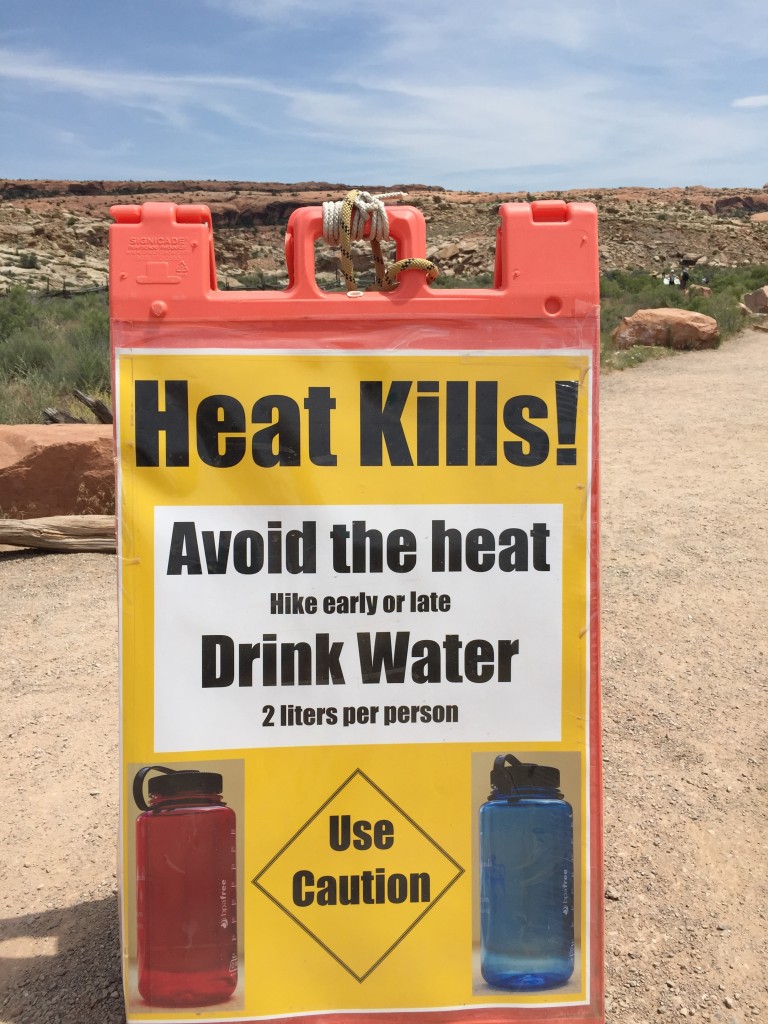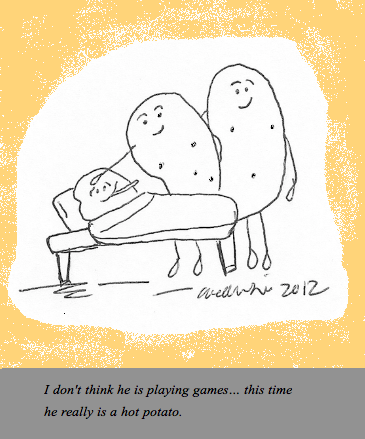The surprising first signs of dehydration
 It’s 100 degrees Fahrenheit outside. We’re hiking around the Southern Utah desert and one of my kids vomits once. Nope, it’s not the stomach bug; that was last vacation. This time one of my kids vomited because of dehydration. Strangely, humans don’t always complain of thirst once they start becoming parched, and my kid was no exception.
It’s 100 degrees Fahrenheit outside. We’re hiking around the Southern Utah desert and one of my kids vomits once. Nope, it’s not the stomach bug; that was last vacation. This time one of my kids vomited because of dehydration. Strangely, humans don’t always complain of thirst once they start becoming parched, and my kid was no exception.
Right now many kids are at camp running about in high temperatures and soon enough, kids will be called back to school for sport practices. Before they go off, let them know that the first signs of dehydration are usually a vague headache and nausea. Warn them not to depend solely on their sense of thirst to signal them to hydrate. If they “just don’t feel right,” take a break. Other signs of heat exhaustion and stroke are outlined here http://www.cdc.gov/extremeheat/warning.html
For kids who play only for an hour or so, water is a good choice for hydration. For the more competitive players who churn up a sweat or participate in vigorous activity, electrolyte replenishers such as Gatorade® and Powerade® become important, because after 20-30 minutes of sweating, a body can lose salt and sugar as well as water. In fact, my sister, an Emergency Medicine doctor, tells the story of a young woman who played ultimate frisbee all day, and lost a large amount of salt through sweating. Because she also drank large amounts of water, she “diluted” the salt that was still in her blood and had a seizure.
If your child plays an early morning sport, start the hydration process the night before so that they don’t wake up already behind on fluids. If your child goes more than six to eight hours without urinating, she needs to drink more.
Avoid caffeine which is found in some sodas, iced tea and many of the energy drinks. Caffeine dehydrates. The American Academy of Pediatrics recommends that children and teens never drink “energy drinks” because of the adverse effects of the stimulants they all contain. Some of the newer highly touted rehydration fluids of the adult world such as coconut water or chocolate milk are fine.
Keep in mind it’s not only sports that can dehydrate kids. Years ago I knew of a tuba player who went to the emergency room after marching band practice on a hot August day.
Next vacation we’ll definitely buy some water bottles to make sure we don’t get dehydrated. Not having enough water can be so dangerous! We’ll also take along paper towels and cleaning fluid too.
Naline Lai, MD and Julie Kardos, MD
©2015 Two Peds in a Pod®
